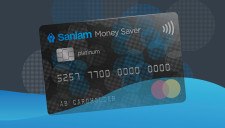What’s the difference between a debit and a credit card?

Last updated on 12th December, 2017 at 05:12 pm
Many consumers view debit and credit cards as the most convenient way to pay for day-to-day purchases. The cards might look the same but there are important differences. We explain, and show you how to swipe your plastic wisely.
Difference 1: Loan vs available cash
The most notable difference is that a credit card allows you to purchase goods and services via a pre-approved loan or overdraft (meaning it’s not your own money), while a debit card allows you immediate access to the available cash or savings that are in your account. When you make a purchase or draw money with your debit card, the payment is deducted immediately from your bank account. If there is not enough money in your account, your purchase will be declined.
Difference 2: Ease of obtaining either of the cards
Obtaining a debit card is often easier than getting a credit card because your credit risk profile will not significantly impact the account. You only need to open a savings, transmission or cheque account to obtain a debit card. When applying for a credit card, you will need to fill out an application form and the service provider will determine whether you are an acceptable credit risk before granting you a credit card. The credit made available to you depends on your credit rating and income earned per month.
Difference 3: Interest earned vs interest paid
Since a debit card does not allow you to spend what you don’t have, you will not accrue debt and thus will not be charged interest on it. Be cautious of credit card spending when interest rates are high. Depending on the amount, and over what period you are able to repay your purchase, you could end up paying a lot more than the item is worth due to the interest charged on top of the purchase price.
Difference 4: Financial discipline
When it comes to financial discipline, debit cards are generally a better option as they prevent you from spending money that you don’t have. A credit card can come in handy when you are short of cash. If you repay the money within 50 to 60 days (differs depending on your bank), the purchase will be treated as cash and you will not be charged interest on it. But be careful, as it is easy to get carried away with buying on credit and trapping yourself in unnecessary debt. Remember that a credit card holds money that is on loan to you. If used wisely, credit cards can help you establish a positive credit history that could result in favourable credit terms, such as lower interest rates or fees when taking out a bond or applying for vehicle finance. Both cards need to be used responsibly. Debit card abuse can leave you cash-strapped, while credit card abuse can lead to serious debt. Be mindful of your spending regardless of your payment method.
Want to learn more?
We send out regular emails packed with useful advice, ideas and tips on everything from saving and investing to budgeting and tax. If you're a Sanlam Reality member and not receiving these emails, update your contact details now.
Update Now







